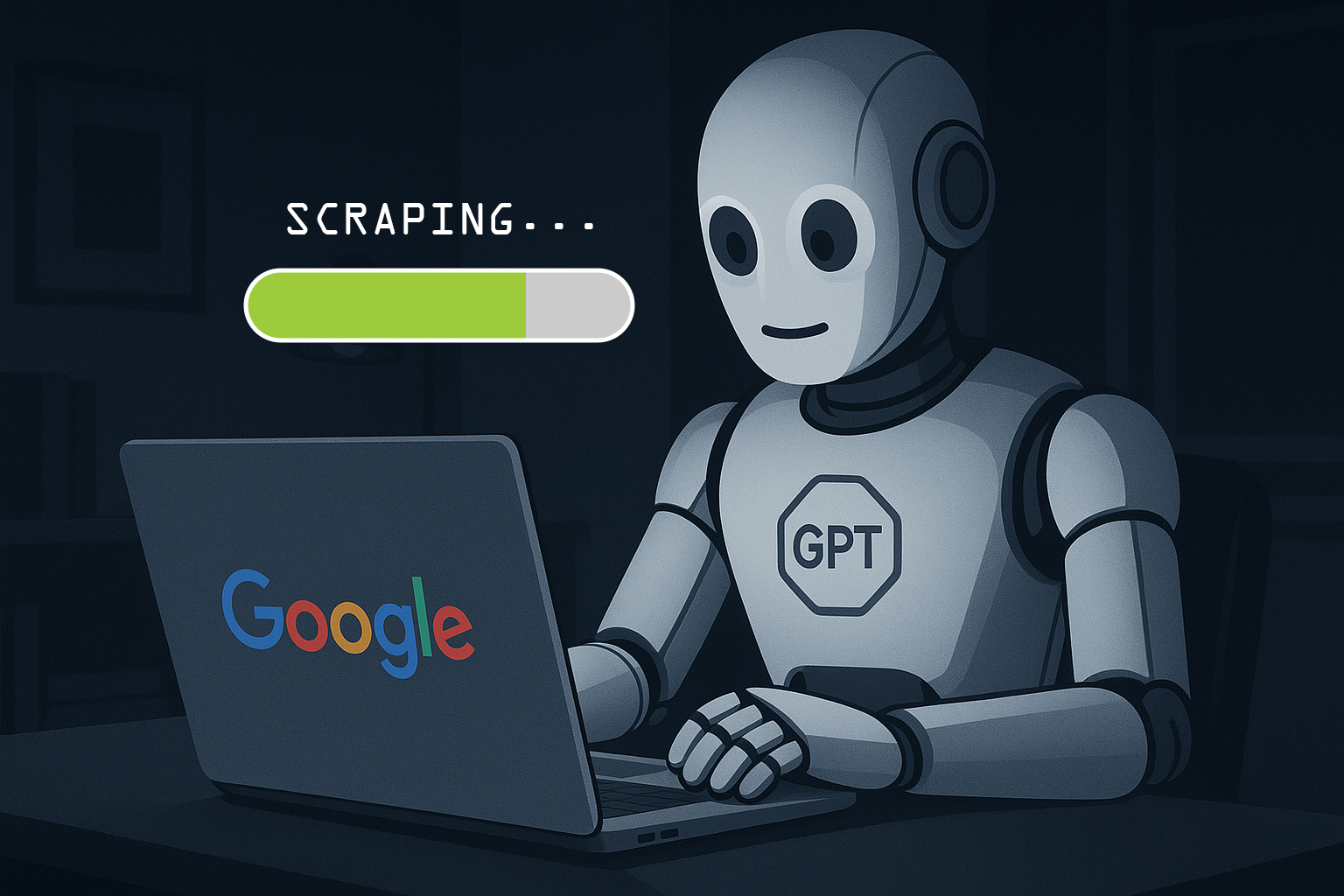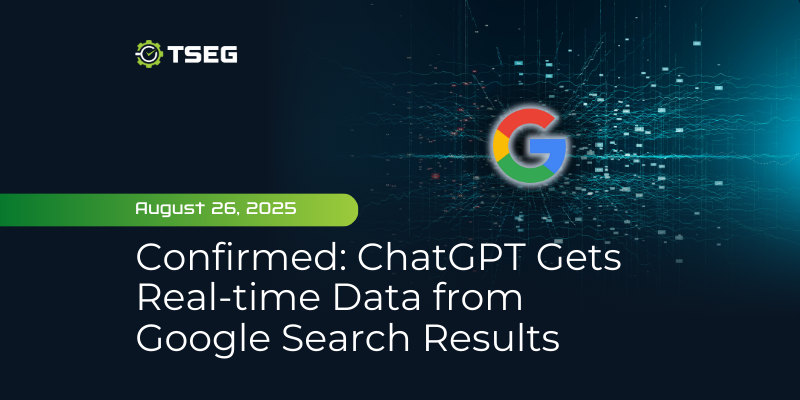Confirmed: ChatGPT Gets Real-time Data from Google Search Results
Posted on Tuesday, August 26th, 2025 at 8:10 pm
The AI Rivalry That’s Built on Google’s Back
OpenAI has been positioning ChatGPT as the smarter, faster alternative to traditional search engines like Google. But behind the curtain, it’s been borrowing from the very platform it aims to replace.
Recent reporting reveals that OpenAI uses a third-party service called SerpApi to quietly scrape Google’s search results and feed real-time data into ChatGPT responses; particularly for news, sports, and trending topics.
Despite its public rivalry with Google, OpenAI’s own infrastructure isn’t ready to stand alone. As of mid-2025, the company admits it still falls far short of its goal to serve 80% of ChatGPT traffic from its own index.
A Scraping Scandal, or Just the New Normal?
The legal gray zone around scraping isn’t new. Google itself built its empire by indexing the open web. But when AI companies use automated tools to grab curated search results, it raises questions about data ownership, competitive fairness, and long-term discoverability.
While OpenAI and others rely on services like SerpApi, Google remains hesitant to block them outright. This is possibly to avoid antitrust backlash from the Department of Justice. That leaves AI rivals free to pull from Google’s proprietary listings while building competing experiences on top.

For law firms, that means your visibility is now affected by an increasingly tangled supply chain of algorithms and aggregators. You’re no longer just optimizing for Google… you’re competing for positioning in AI summaries that don’t have a definitive playbook yet.
Why This Matters to Trial Attorneys
Search is splintering, but Google seems to have a solid, foundational position. Remember that your potential clients are no longer using just one channel to find legal help. They might start a search in ChatGPT, continue to search some more Google, and validate what they find by searching on TikTok, Reddit, or Instagram.
The fact of the matter is that Google is still a crucial part of user search behaviors, and even though it might be losing market share to AI search, it’s not being replaced anytime soon. The confirmation that OpenAI is feeding ChatGPT data from Google search should solidify law firms’ beliefs that traditional SEO is still the top channel for strong, long-term ROI. Competitive firms aren’t ditching traditional search, but instead they’re combining it with strategies for AI optimizations to maintain top positioning in search.
Search Results Still Vary
If you’re thinking “I’m ranking pretty high on Google, I’ll be fine” – you’re wrong. Ahrefs recently found that more than 83% of sources ChatGPT cites don’t appear in Google’s top results for the same queries. So even firms that dominate traditional SEO may be nowhere near AI visibility, if they aren’t optimizing for AI search as well.
This discrepancy reinforces that optimizing for search today means more than just ranking highly. It requires structuring your content so it’s indexed and usable as source material for AI while still appealing to Google’s algorithm and performing well across social platforms. If you don’t have a well rounded approach to multiplatform SEO by now, your firm is going to have an uphill battle to catch up very soon.
TSEG’s Recommendation
Optimize for every platform, but own your authority. Proactive law firms aren’t picking a side between Google and AI search, they’re strategizing for both. That means:
- ⚙️ Building high-authority, structured content that serves as credible source material for both search engines and AI models.
- ⚙️ Creating content with clear context, client-focused language, and consistent branding so your message survives even when summarized by a third party.
- ⚙️ Partnering with legal marketing experts who understand how discovery is changing and what your firm needs to do to stay visible across all surfaces.
TSEG helps trial attorneys lead in this multi-channel discovery environment. We help firms move beyond rankings by engineering visibility that produces high quality cases, regardless of which platform clients use to find you. For any help with your law firm’s SEO strategies, you can reach out to us for a brief call with our team of digital marketing experts.
